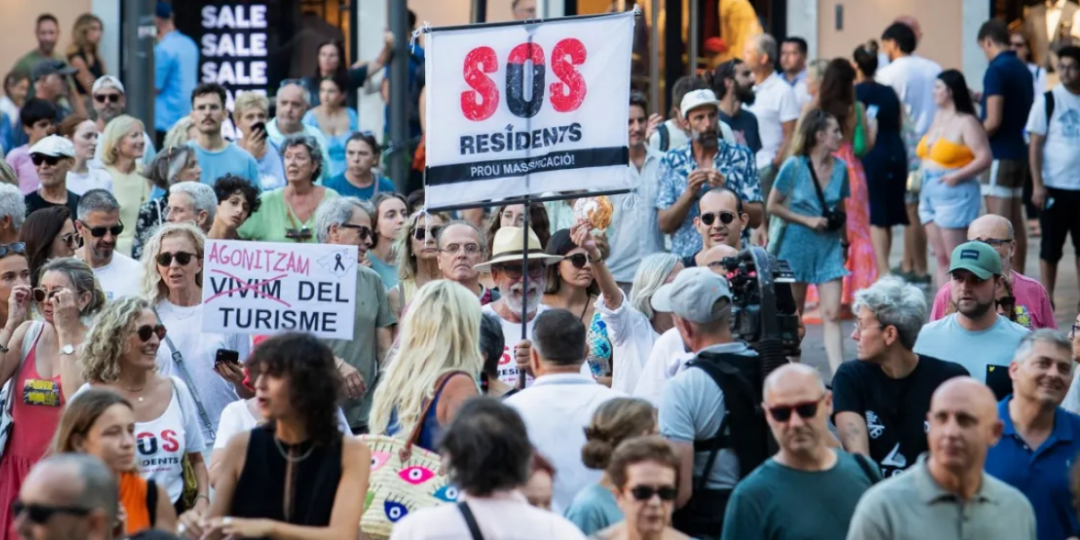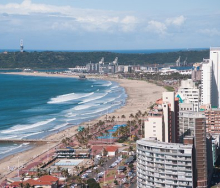Activist groups in southern Europe have organised a wave of coordinated anti-tourist protests on June 15 to draw attention to the housing crisis, rising rent and environmental impacts caused by overtourism.
A coalition of activists and local campaigners under the Southern Europe Network Against Touristification banner announced the protests after a strategy meeting in Barcelona, attended by 120 delegates from more than a dozen cities.
Protests will take place in destinations suffering from overtourism, including Barcelona and Mallorca in Spain, Venice and Palermo in Italy and Lisbon in Portugal, according to EU Today.
It is unclear what form the protests will take; however, some reports indicate that protesters will carry water guns and march through historic city centres, picket at airports, and blockade tour buses and popular landmarks. Organisers say the aim is to be disruptive, but peaceful.
In July 2024, anti-tourism protests in Barcelona resulted in activists cordoning off restaurants and hotels and spraying tourists with plastic water guns.
Sue Garrett, GM: Pricing, Supply and Marketing at Flight Centre Travel Group South Africa, believes that the protests will have some impact on visitors. “Local authorities are already increasing their presence around key landmarks and transport hubs. Travellers may encounter temporary road closures, larger crowds near demonstration routes, or delays to public transport services – particularly in historic centres and around major attractions,” she said.
Garrett is advising clients of the following:
- Stay informed: Monitor official city channels for live updates. Many European cities offer real-time alerts via their tourism apps or social media feeds.
- Be flexible: Plan itineraries with extra time on June 15 if moving between sites or catching flights or trains. Consider adjusting sightseeing schedules so that visits to high-profile landmarks can be moved earlier or later than protest times where possible.
Carla Vickers from Italian and French Excursions is advising clients to be aware of their surroundings at all times and, if possible, avoid areas where protests are taking place. “Generally, these protests are pretty calm, but of course, you still have to remain vigilant,” she said.
Garrett is also reminding clients to remain respectful and understanding. “These protests are not aimed at individual travellers but reflect broader conversations about sustainability and local quality of life across Europe’s most popular destinations. Respecting local sentiment by being patient if plans change unexpectedly goes a long way towards ensuring positive relations as guests abroad.”














